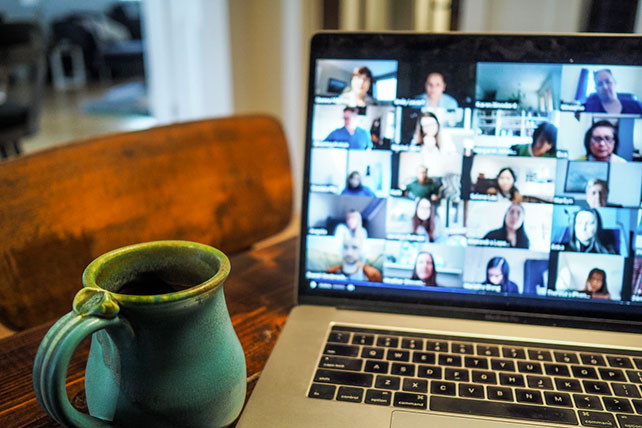9 Duke students. 9 different Duke paths. One new community.
 Last semester I had the privilege of co-facilitating – with my fellow RJ practitioner, Chris – the first ever Restorative Justice House Course at Duke. When I say that it was a privilege, I really do mean it. Nine Duke students, who may have tangentially known each other or crossed paths, came together for an hour and a half each week on Zoom to share our fears, our successes, our family stories, and our passions. After our twelve sessions together, it felt as if we had known each other for much, much longer. We felt connected. That is the power of RJ. And because of this experience, I know that building an inclusive and authentic community is POSSIBLE. In fact, it is within everyone’s reach.
Last semester I had the privilege of co-facilitating – with my fellow RJ practitioner, Chris – the first ever Restorative Justice House Course at Duke. When I say that it was a privilege, I really do mean it. Nine Duke students, who may have tangentially known each other or crossed paths, came together for an hour and a half each week on Zoom to share our fears, our successes, our family stories, and our passions. After our twelve sessions together, it felt as if we had known each other for much, much longer. We felt connected. That is the power of RJ. And because of this experience, I know that building an inclusive and authentic community is POSSIBLE. In fact, it is within everyone’s reach.
Restorative Justice is about truth-telling, it’s about really listening – not to respond – just to hear from the perspective of someone else’s lived experiences. Each week the group engaged in a circle practice, before diving into some of the more academic conversations surrounding RJ: how to use it in criminal justice or education settings, for example. All of the other RJ Fellows joined for “guest lectures” and they too were welcomed into the special space that was our Zoom class.
What I learned: In order for a new group of people to trust one another, a willingness to engage and share and a very clear intentionality behind the conversations are essential. The stories shared in an RJ space are not just about what happened, but how that made us feel. Whether you are conscious of it or not, when you are in a circle – passing around, in this case, an invisible talking piece – you feel a sense of comfort. From my many circle experiences over the last two years, it feels as if you must dig deeper. You let yourself be vulnerable and no matter the circle topic, you feel how that vulnerability makes you stronger, and how it makes your surrounding community stronger, too.
Now, in the midst of a global pandemic that largely caused the erasure of community, it’s more important than ever that we are thoughtful about the ways in which we interact with one another. That we consider how we are going to restore our communities as we begin to find a new sense of normalcy. We have what some might call a blank slate, a rare opportunity to re-imagine what communities should feel and look like. RJ may be the perfect start.
